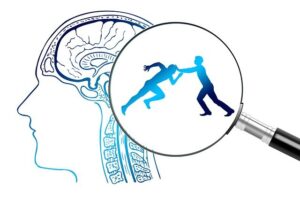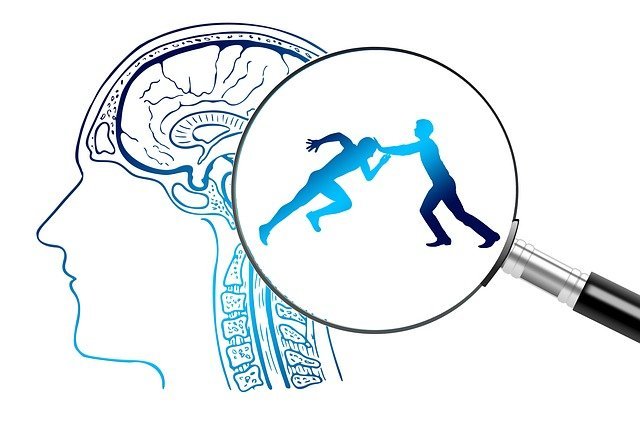
Many people suffer from fear of rejection, which is rooted in self-rejection.
That is why it is important to find out what self-rejection means and how we can overcome this difficult but common psychological problem.
What is self rejection?
Self-rejection is defined as “a refusal to accept part of one’s personality, whether an attribute, a tendency, or a characteristic”.
The reason why we are not accepting ourselves is because of self-judgment. We see something in ourselves that we don’t like and judge it as something not belonging to us.
We believe these personality traits are inherently bad so we try to get rid of them.
What does self-rejection do to us?
Self-rejection is a painful and also harmful psychological process because we believe we are not worthy of love. We feel down, sad and sometimes even desperate.
When this happens we try to compensate for these bad feelings by doing things like drinking too much alcohol or watching tv excessively, in order to cover up or distract ourselves from our feelings of sadness or emptiness.
We sometimes feel like we don’t even want to get better because we are so absorbed in our own self-hatred.
What happens next is that the negative feelings intensify and lead us into a very dark place where it’s hard to escape from on our own.
What can we do about self-rejection?
Self-judgment is one of the major causes so the first step to overcoming self-rejection is not being so hard on ourselves.
We need to accept that we are a work in process and that there isn’t a perfect human being that doesn’t have any flaws or who has everything going for him or her.
We do have to be aware of our actions and behaviors in order to avoid making mistakes and causing harm but we don’t have to beat ourselves up about them because this doesn’t help us improve.
We need to work on self-forgiveness in order to overcome self rejection so that we can heal from past traumas and from the pain caused by our negative beliefs. Self-forgiveness is a very important step in the process of overcoming self-rejection.
How do we overcome self-rejection?

It can be difficult to overcome self-rejection on our own because it involves a lot of pain and a very painful process from the past which is why we need help from others.
That’s why psychotherapy can be so helpful when working with people who suffer from low self-esteem or who have been rejected by someone they once loved.
In therapy, the client learns to relate in healthier ways with others and gets support from his or her psychotherapist.
Self-rejection is a very common psychological problem that affects many people around the world. Self-rejection can be overcome but this requires hard work and time.
Luckily it’s never too late to start over again and become the person we were meant to be. We need to free ourselves from the burden of self-judgment and work on accepting our imperfections.
We have to put an end to being so hard on ourselves and realize that we are all works in a process that can change for the better at a slow but steady pace.
What is the difference between self-rejection and healthy judgment?
Self-judgment can be both healthy and unhealthy.
Healthy self-judgement
Healthy self-judgement means seeing things in ourselves that we don’t like but accepting them as part of who we are (for example, if we want to lose weight and we realize that we aren’t as healthy as we should be).
It’s not self-rejection if we see things in ourselves and accept the fact that we need to work on them.
For example, if our house is a mess it doesn’t mean that there is something wrong with us or that we will never be able to achieve our dreams, but it does mean that we need to make changes to get rid of the mess.
However, if we are obsessively tidy and it’s impacting on other aspects of our life then this is self-rejection because it means that we see ourselves as someone who will never be good enough (who will never reach his or her dreams, for example). Healthy self-judgement allows us to make the changes that are needed.
Unhealthy self-judgment
Unhealthy self-judgment means seeing things in ourselves that aren’t actually there or seeing them as worse than they are. It means calling ourselves names and being really hard on ourselves over relatively minor issues.
It means telling ourselves how worthless, ugly, stupid and useless we are.
The problem with being so hard on ourselves is that it prevents us from growing because it causes depression, anxiety, low self-esteem and other psychological issues.
Our judgments can then turn into beliefs that we hold about ourselves which cause our problems to persist and get worse over time.
- Related post: Choosing Pain May Be a Key to a Meaningful Life
- Related post: Why do difficult experiences have the potential to transform us
How do we know when we are being too hard on ourselves?
The difference between healthy and unhealthy self-judgement is not always clear.
For example, when we see that our house is in a terrible state and that we need to start cleaning it in order to get rid of the mess then this can become an obsession (we don’t want anyone to come over and see our messy house).
It becomes self-rejection when we obsessively clean the house but this doesn’t change its state. All of our efforts to keep it perfectly tidy are useless because no matter how much we clean, within a few days it becomes a mess again.
When this happens on a regular basis then it means that our judgment about ourselves (that we are useless because our house is always messy) has become an obsession that causes us to act in unhealthy ways.
When people criticize us for not looking perfect or buying new clothes, should we accept their judgment about ourselves?
No… definitely not.
It’s healthy to work on who we are and try to improve ourselves but other people’s judgments have nothing to do with who we are as people.
They have their own issues and problems, which they project onto us. Sometimes those people can love us very much but the only way that they know how to show it is by criticizing or judging us.
If someone loves you then they won’t judge you for your imperfections… they will try to help you work on them. We are responsible for our own lives and nobody else is.
Final Thought
It’s okay to see things in ourselves that we don’t like and accept the fact that we need to work on them. We shouldn’t be so hard on ourselves because there are people who love us for who we are (imperfections included).
There is no point in criticizing or judging ourselves because it doesn’t change anything. We can all improve in certain areas of our lives and when we try to change the things that we don’t like about ourselves (our flaws, for example) and show good intentions, then good things happen.
We shouldn’t be afraid of change because it helps us grow and become better people.
Forcing ourselves not to change is self-rejection and it doesn’t change anything, on the contrary… It causes us to be more miserable and prevents good things from happening in our lives.
Everybody deserves to be loved and cherished… nobody is perfect, but we can always work towards perfection (or whatever goal we set for ourselves).



